Hello and welcome back to What China Wants.
For anyone who has spent time in China, or amongst Chinese people wherever they are, Chinese New Year is by far the biggest celebration.
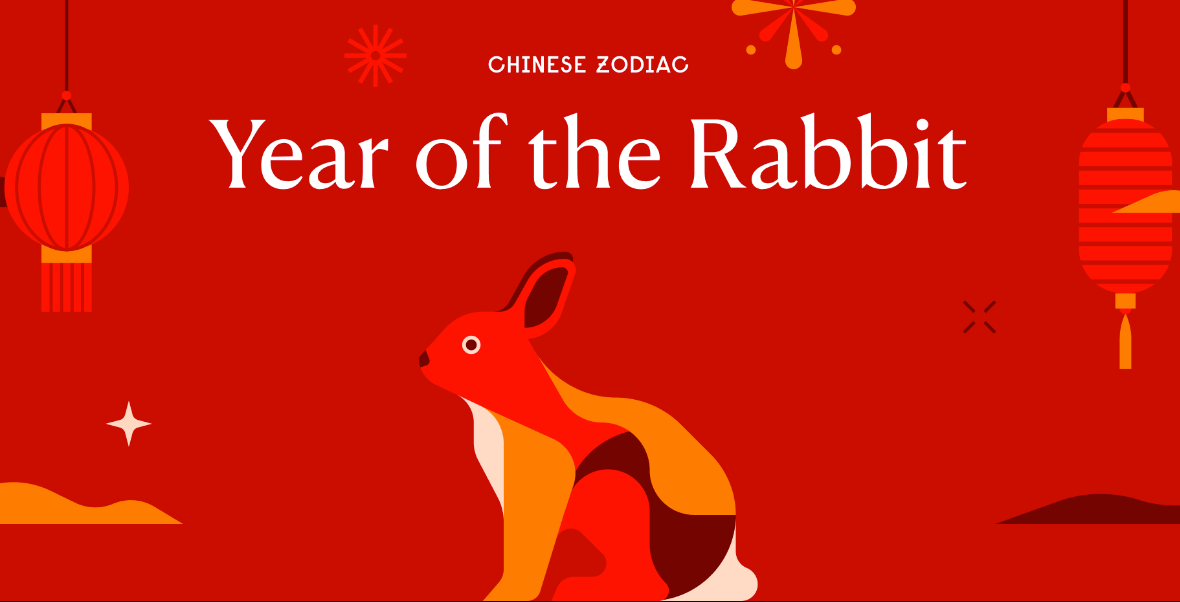
As we move from the year of the tiger to the year of the rabbit, we are joined by friend of the show Professor Jinghan Zeng of Lancaster University to explain a bit more about CNY. We delve into the cultural realities of celebrating it, and hear what the event was like for him growing up in China.
Here is a summary of our discussion:
On the folkloric origins of Chinese New Year
Why small oranges or clementines are useful
How normal families in China spend the holiday
Discussing the largest human migration on Earth (at least, pre-COVID)
You can also listen to the podcast on Apple, Amazon, or Spotify.
As always please do share, comment, and subscribe. We’ll be back soon with more What China Wants.
Many thanks for listening.
(In the meantime, if you would like more information about the Evenstar Institute and our research, then please email me sam.olsen@evenstarglobal.com)
***
Here is the transcript:
Sam Olsen: Hello, and welcome back to What China Wants with me, Sam Olsen and Stewart Paterson of course. Today we are going to be talking about Chinese New Year. Now, despite it being perhaps the largest ceremony or festival in the world, it is really not very well known in the West, or the intricacies and the practices and the folklore, which is really interesting.
And so we thought that it would be fantastic to get back on the show someone that you would have last heard, speaking to What China Wants in October, when we were discussing the 20th National Congress of the Communist Party of China. And that is Professor Zeng from Lancaster University. He is the Chair in China and International Studies, and the Academic Director of China Engagement there, and, of course, someone that knows a lot about Chinese New Year. Welcome back JH, and thank you very much for being with us.
Jinghan Zeng: Thanks for having me.
SO: So, to get things started, why is Chinese New Year so important to Chinese people? And what is the cultural context and historical significance of it?
JZ: Well, Chinese New Year is the most important festival for China. I think the most important part is family reunion, that is the time that people gather together, and try to remove the bad and the old, and welcome the new and the good. So it is very important in the Chinese culture and country back to 3,500 years ago. There is a long historical origin about it, different kinds of history, different kinds of historical stories about the Chinese New Year, and one of the most popular versions of it, we refer back then to the beast of Xi who used to eat livestock, crops, or even people on the eve of a new year.
To prevent this beast from attacking people and create distractions, people will put the food at their doors to prevent the destruction. And then, back then there is a wise man in different versions of the story. Some stories mention this is a young boy and in some versions this is an old man, who has figured out a way to scare this beast away, which is a by loud noise, which can be created by firecrackers and the colour of red. Starting then, people will start to put red lanterns and red scrolls on their windows and doors to stop the beast Xi from coming inside. And they also used cracked bamboo, later replaced by the firecrackers to scare Xi away. The story ends that the monster never showed up again after you do that. And a similar story in another version, in which the beast is called Nian, but it's a similar story. If you go back to that history, that is why people like red colours, because they believe that the red colour will scare that beast away, as will the red lantern and firecracker; all of that were designed, and can be traced back to your stories.
Stewart Paterson: That is really interesting. One of the sort of iconographies of Chinese view that I am reasonably familiar with is the clementines or small oranges. You often see those around as a sort of Chinese New Year decorations. Is there any great significance to that, or do they just happen to be in season at the time, and therefore they have come to be a part of the festivities?
JZ: Right. Okay, so when I was young, I liked that a lot. Where I am from, in the southwest part of China, the small orange, if you cut it well, it can be used and be made into a lamp and you put a small little candle inside of it, then a small orange can be made into a little lamp, and that is something that kids like very much. When I was young, I always asked my parents to buy a lot of oranges, not because I liked to eat it, I just liked to cut it - and you know, you are going to have a lot of failures before you can make a successful one. So you will end up with a lot of uneaten oranges with lots of failed products. So yes, and also the colour as well, if you put a candle in, it looks very nice actually.
SP: So obviously, the timing of Chinese New Year, because it is a Lunar New Year, in terms of our own calendar, a Western calendar, it is at a slightly different time each year, from late January to early February depending how it falls. But, in everyday life in China, how significant is the lunar calendar vis-a-vis a sort of Western calendar? Or is that, in fact, in China, not even a Western calendar, it is just an alternative calendar that is separate from the lunar calendar? Does the lunar year as it were, penetrate into other areas of life other than the timing of holidays?
JZ: Well, I think there is a generational gap there. So in my generation, for example, at least all the people I work with, most of them probably, we do not rely on the lunar calendar that much. But in my parents' generation and my grandparents' generation, they rely on it very much and there is a special calendar which will be displayed at home, and they will check in on that calendar. And obviously, the reason for the generational gap, if you go back to where it all come from, in ancient times, I think it is not only China, I think in Asia, generally-speaking, they pay a lot of attention to this lunar calendar because of this cultural society phenomena back then.
The calendar was used to guide the agriculture affairs and farming activities, because it is able to divide the year into 24 solar terms. Those terms can reflect the change of season, and, in a very good way they are very accurate in predicting the change of temperature, the light times, and harvest times of crops or even insect activities. So because of that, I think that was a tradition of why it gradually evolved to today. And in some rural areas, I think there will be a lot more people paying attention to this lunar calendar than those in urban areas, because that is relevant.
Also there is this generational gap. So in my generation, for example, we rarely use it. But in my parents' generation, they use it a lot. And in China, they sell that special calendar which you can take home, and it will tell you what day it is today in the lunar calendar, and they will often go with something like 'what you should do', or 'what is better to do today', or 'what not to do today'. So I think the generational gaps matters a lot here.
SP: And just one more follow up question on that which springs to mind obviously, is in terms of year numberings. We refer to next year as being '2023', that sort of 'AD'. How have the Chinese traditionally numbered their years, in reference to what, as is it were? Has it usually been in terms of the reign of a monarch or an emperor or how else have years historically been numbered?
JZ: Historically, I think there will be an emperor there, for example, Qianlong 'however many years' or Shunzhi 'what year', and when you got a new emperor coming in, or the new emperor wants to change that they will do it. Even in Taiwan nowadays, I think when the Republic of China was created, that's become 'Republican year' in Taiwan, nowadays, they will say it's 'Minguo' 'how many years' so they still use it.
But in mainland China, I do not think we use it that much. And every year we call we just refer to 'this year is 2022, next year is 2023'. But sometimes people will use the animal year, for example, next year is the year of Rabbit, but we no longer use it in a traditional way that we call it starting with Emperor and then the date, and it is also a different way we are using it now from Taiwan.
SO: So talking of rabbits, for those people that might not know, the Chinese New Year every year is a different animal as per the Chinese zodiac. So, JH, do you want to just tell the listeners a little bit about what the Chinese zodiac is? And as we are going into the year of the rabbit, what that means and the historical, perhaps or mythological origin of all that?
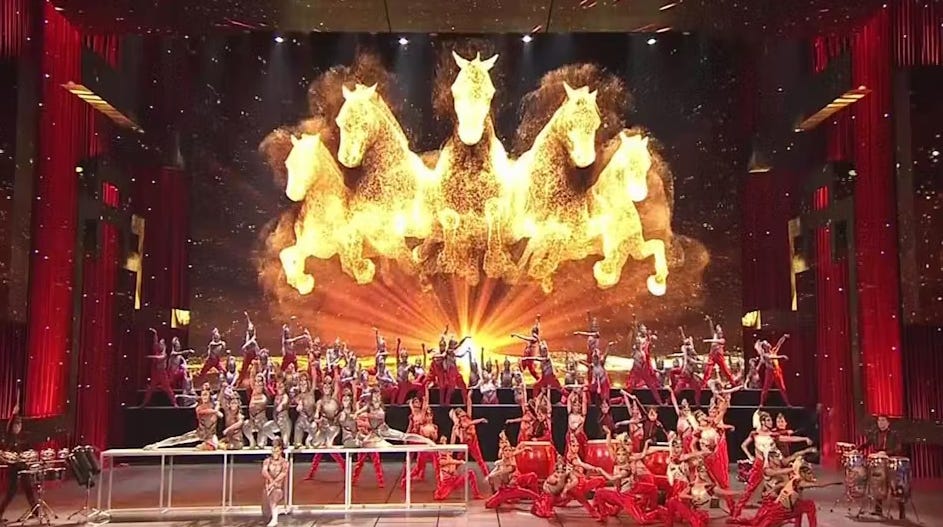
JZ: Yes, well there are 12 animals actually, in Zodiac years, and there is also an order to it, starting from number one, Rat, it goes Ox, Tiger, Rabbit, Dragon, Snake, Horse, Goat, Monkey, Rooster, Dog, and Pig. So, rabbit is the fourth one, and usually, the Rabbit stands for mercy, elegance and beauty. It was believed that people born in a year of the Rabbit, are calm and peaceful. They tend to avoid fighting and arguing at all times, but had an artistic or good taste in life. Well, that is what is supposed to be, I was born in the Year of Rabbit so I am not sure whether that fits exactly.
SO: Are you more on the elegant side, or which is the characteristic that suits you best?
JZ: I am not sure whether I can fit in that category. But I think that's genuinely the label, people will say "okay, if you are from the year Rabbit, that is you, and if you were born in the Year of Tiger, that's it". Obviously, there is a long historical story about Rabbit and Ox's race and telling you that back then when 12 different animals started to run, and how each one of them gets their roles from numbers one, two, three, four, etc. There was also a story that the Cat wanted to join in with this group of animals, but failed to get into it. So you cannot go to a Cat then in that 12 year cycle. So there was a long historical context of it...
SO: And we were talking earlier about Nian and something that people might know is that the animal she is, she is the Chinese word for year. Chinese New Year is full of imagery and language, which is very much reflected in the broader Chinese culture. You have mentioned it being sort of the biggest festival of the Chinese people. But it always seems to me as an outsider that the Chinese New Year is one of those things that really does bring different peoples and the different ethnic groups and everyone across China together.
Would you say that Chinese New Year has got a unifying purpose, a unifying mission for the people of China? And if so, how has it changed its relationship with the authorities over the period of time from when China was an empire, to the period of time as that sort of 'normal Republic' or 'split Republic', and then into the into the Communist period, has Chinese New Year's relationship with the people in the view of authorities changed? Or has it always been that unifying presence?
JZ: First of all, Chinese New Year is not only celebrated in China, it has been celebrated in other countries like Korea, like Vietnam as well. At the same time when you have a large Chinese population, they will celebrate the Chinese New Year as well; for example, in Singapore, Cambodia, Malaysia, Indonesia, Thailand, Myanmar, the Philippines, even in some parts of Canada, they will celebrate it where they have a large Chinese population. Because of that, in some places, for example, there is a view that it should not be called Chinese New Year. For example, a lot of people in Korea believe it should not be called Chinese New Year, it should be called Lunar New Year because they celebrate it as well.
I think there is a cultural context of that, obviously, but if you go back to the history, you will find that Korea was a tributary state of China, in which they identify themselves in many ways in the Chinese hierarchy of the global order. So, there is a long history of it. But I would not say there is one single unified way or understanding of the Chinese New Year, even in different parts of China, I think people celebrate Chinese New Year very differently. And the concept and understanding of China, where China comes from and what China stands for is also different at different times as well. So the power relation, I think it has always been less about national state, but more about civilisation, it is about people's culture, people's language and those things are also a dynamic as well.
SP: One of the things that people will be wondering about this particular Chinese New Year is actually how widely it will be celebrated in the mainland? And will people travel in the numbers that they have historically travelled? Obviously, the COVID years were an aberration in terms of that, because it's the sort of largest migration on Earth, isn't it when, you know, urban workers go back to the countryside to meet up with their families? How do you see that panning out this year in the light of the sort of abandonment of zero-COVID restrictions and the consequent spread of the disease? Do you have any thoughts on that?
JZ: Well, I think it is going to be very complicated. In the past, if you go back, I think you are right to say this probably is the biggest human migration before the pandemic. For example, in 2019, there was recording that in the Chinese New Year celebration, 15 days, it involves 3 billion trips in transportation, including 400 million trips by railway. So that is really something significant in terms of scale. That is a moment when people return home to meet their families. This is why a lot of people, for example, working in Beijing working in Shanghai were returning to their homes, and to meet their family, this is significant.
In the past two years or so, even in 2020 I think the lockdown happened after the human migration. I think it is going to be a very different kind of Chinese New Year for the Chinese people. The estimates are that the peak time of COVID spread in China is going to come in a few months' time, and it is estimated that this human migration in Chinese we call 'Chūnyùn', transportation during Chinese New Year, is going to significantly escalate the spread of virus in China.
So I think for the Chinese people, what has been happening now in terms COVID has been putting a big shadow on the Chinese New Year. We usually want to get rid of the old, the bad, and we welcome the new and the good. I think it is putting everything in the shadow because we all know that it is not going to get away so easily. And when we gather, we are gathering to celebrate, and you know, be in a very positive mood, but I think this Chinese New Year is going to be different because of that COVID situation.
A lot of my friends back in China have recently got COVID. This is something quite significant that they have never heard of, and the hospital is in serious problems as well. So basically, it is back in 2020 time of the United Kingdom, the first wave of COVID, and that is something very serious. And I recall that at that time, the first Christmas, there was a big debate in the UK about "who dares to steal our Christmas?" And "how can you do this kind of thing?" It is the same thing in China as well, because Chinese New Year is so important. And now with all the things I think it is going to produce very complicated feelings about it.
SO: Okay, so let us just assume for a second that we are in a pre-COVID year, and you have arrived back home. And you said you are from the southwest of China. So obviously, there are regional variations, as you just mentioned, but you arrive back home, and you are seeing your family, tell us what you do. How do you celebrate the actual event? What food do you have? Do you give each other presents? How do you go about enjoying the time?
JZ: So I just want to emphasise that different parts of China have different ways of celebrating it. I am from the southwest, a city called Chongqing. So, the memory of that is different, I think. So usually what we do is we have dinner together as a family. Usually we start with lunch, and some family activity, and then dinner. And that is where you meet your relatives and all those other relatives in the family. In my city where I am from, what we like to do is I wouldn't call it a gambling activity, but it is something we call the mah-jong which you have got four of us and we just play together. So that is very popular in the place where I am from and people in Sichuan, we always play that. That is our opportunity that you play with a family so adults will be doing it, and younger kids will either be watching TV or playing outside. We would have firecrackers, but it is different now, because of the environmental pollution, I think it has been changing the way people perceive Chinese New Year.
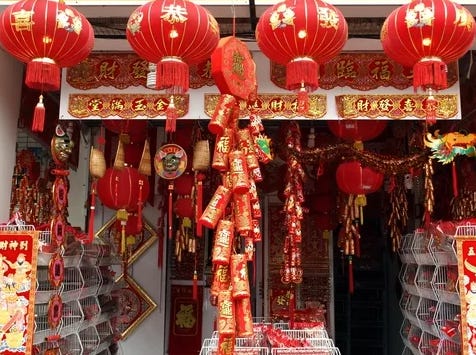
When I was young, we would do the firecrackers everywhere, and you would buy a lot of that and play it. And you will put the new clothes on and you would eat a lot of good things. But in my generation, I think the understanding of that is different because in my generation China has already had - I think since the older generation, the economic growth has become very rapid and people's material, people have enough. Living standards were different in my parents' generation, and the Chinese New Year matters a lot more probably than for my generation because back then you do not really have enough / good food to eat, you do not always have new clothes that you can buy at any time. So back then the Chinese New Year is once a year's time that you will be able to get new clothes, you will be able to eat whatever you want to eat, and they do not usually have that luxury in the rest of the year.
That is different from my generation because in my generation ever since China's reform and opening up, I think that significantly really provided a large amount of material goods and people's living standards are very different now. People started to buy computers, clothes and cars and bigger houses. So new clothes is no longer something you will save up only for the festival, you can just buy it. If you want to eat something, just go to a restaurant. It is no longer like in my parents' generation you will just save up this money or save other good things to wait for a special occasion to do it. So that perception of Chinese New Year is different
In the past one of the most popular activities is we will be sitting together to watch the CCTV gala which is a Chinese television gala show. Back then, I think there was not much entertainment activities, not like today where you have got computers, you can watch a movie or you can go on your iPhone and you can watch on your Tiktok, you have so many programmes you watch too. Back then you only have one single programme in a TV and probably not everybody has a TV in a rural area. So the entire village, people will be gathering together to who has a TV and sit there from 6pm to 12 o'clock, watch the entire programme, the TV gala, and at the same time chatting with each other. It is like, I think, in the UK, people gather together in a bar or in the pub and watch the World Cup, it seems like that.
But back then you do not have much choice. It is like you can watch this programme or that programme - no, you only have one single programme. So back then that was a lot more important, but now, I think it is very different. I think the older I grew up, the less people like the TV gala, but back then it was a big thing because now we have so many programmes, different Chinese television have their own TV gala, or Chinese New Year, you have so many options. So ,the options have become a lot more diversified in the way you celebrate Chinese New Year.
SO: Stewart, I am sure you were in a similar boat to me, but one of the things I remember about it, especially living in Hong Kong, was the terror associated with the presents having to be given at Chinese New Year which in Hong Kong are 'Lai See', but obviously in the rest of China are 'hóngbāo', the red packets of cash, and never knowing how much you are meant to give, or who you are meant to give it to. So how do you get it right?
SP: I am sure with children it is the quantity that matters, but the notes are meant to be brand new, I think that is an important part of it?
SO: And they always ran out of brand new notes just before, so you had to go in like months before to make sure you got the brand new notes, it was just always the faux pas thing.
SP: I think it is all electronic now. With Alibaba, you can have electronic Lai See notes where you do not have to worry too much about the age of the notes.
JZ: Yes, yes, I think that is one thing I forgot, probably made me most excited when I was a child. So I think there are different rules, but in my family, the rule is that as long as you have not got a job yet, as long as you do not get job, you are entitled to the rights of that red envelope. So that would mean that I can still get it when I was, for example, doing a PhD, which I didn't, but theoretically-speaking, I was entitled you. But I did not because I was in the UK not able to fly back to China to do that.
But yes, that is something very exciting that children can get some money, but most of it, you cannot keep it because you are not capable of doing it. Now I recall that when I was five or six, people gave me some money, and in an hour or so I forgot where did it go. So, at least my parents, I think a lot probably will be the same as well, they would say "We will keep it for you. We will just keep it for you."
SO: That old chestnut!
JZ: Yes, you do not have it and a few years later, we will have forgotten anything. But you can use some part of it to buy some new toys, which are nice and I like it. Regarding how much, okay, I think it depends, and also depends on the quantity as well. It is also about the exchange. For example, my parents will give a few envelopes to other kids and their parents will give it to me as well. So ultimately, theoretically-speaking, the game is supposed to be breaking even. So how much money you get out and how much money comes in supposed to break even. And the idea of that is to give an envelope, which is a red envelope, which will bring luck to the children; the children get it and will get some luck and they will grow healthy.
So ultimately, it is less about quantity, it is about breaking even for the parents. Practically it is always impossible to break even, but the big numbers was always roughly the same because you know how much they will give you and how much you will be giving them. And also, where I grew up, in the city of Chongqing, we always have one child. So that leaves the complexion of someone having two or three children and give us two or three red envelopes but they will give you one back. What this means is that all that is less of a problem at least as far as I know. I think the rising living standards and inflation, the expectation will go up as well. So, the expectation will always go up, so some of it is adjustable.
SO: Well, I know my kids, the one thing they miss about Chinese New Year being in the UK, is the fact that no one gives them any red packets anymore. Maybe that is something that we should change here.
SP: JH thank you so much for joining us and helping our audience understand Chinese New Year a bit better so that they can enjoy the Chinese New Year celebrations themselves with an understanding of what it all means. So thank you very much, and we look forward to having you back on the show in the near future.
JZ: Thank you for having me.
SO: Great. Happy Chinese New Year, bye.
JH: Bye. Thank you, thank you all.





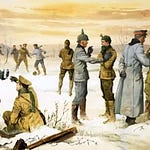
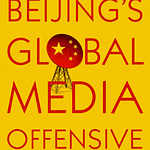
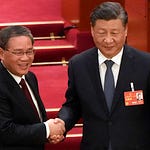
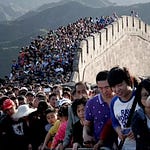
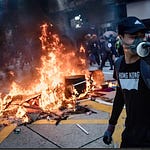


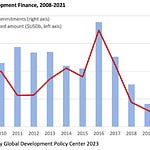
Share this post